뉴스&스피킹(영자신문)
하루 10분이면 영어에 대한 두려움을 극복하고 누구나 유창하게 영어를 구사하실 수 있습니다.
-
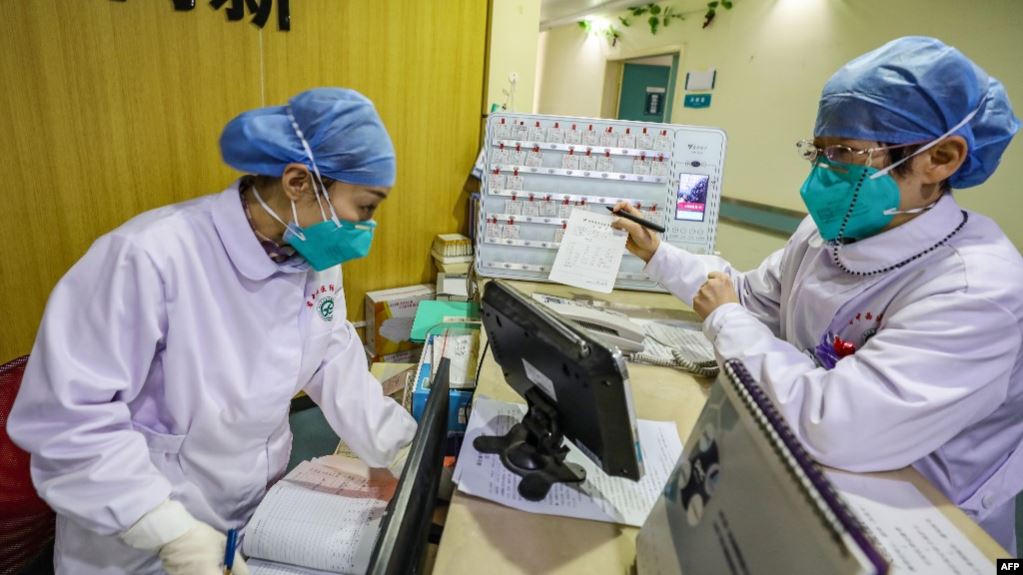 Efforts Intensify to Contain New Coronavirus The outbreak of the new coronavirus that started in the Chinese city of Wuhan has mobilized medical efforts around the world.
Efforts Intensify to Contain New Coronavirus The outbreak of the new coronavirus that started in the Chinese city of Wuhan has mobilized medical efforts around the world.
The World Health Organization declared the outbreak a “Public Health Emergency of International Concern” on Thursday.
By Friday, the disease had killed more than 200 people in China and infected thousands.
The fast-spreading virus, which first appeared in central China in December, has been confirmed in more than 20 countries and territories. The list includes Japan, South Korea, Singapore, Thailand, Vietnam and Cambodia. But countries outside of Asia – including the United States, Australia, Canada, Germany, Britain and France – have reported confirmed cases.
Most of those who have been infected in other countries had recently visited Wuhan.
China has barred travel from Wuhan and other cities in central Hubei province. The ban places a partial quarantine on more than 50 million people – something that has never happened before.
Travel advisories
Some nations have completely closed their borders to avoid infections, such as Mongolia and North Korea. Russia has closed its land border with China, which extends more than 4,000 kilometers.
The U.S. State Department on Thursday released a “Do Not Travel” advisory for China and has advised Americans in the country to leave.
Chinese foreign ministry spokeswoman Hua Chunying said that the warning was not appropriate for the situation.
However, foreign visitors are rushing to leave China, with countries including Japan and the U.S. sending special flights to help citizens return.
Late Friday, the U.S. Centers for Disease Control and Prevention (CDC) released an order aimed at protecting returning travelers and the public. It said that all 195 U.S. citizens who returned to the United States on a special flight from Wuhan would be quarantined for 14 days.
In addition, the Administration of President Donald Trump declared a public health emergency in the U.S. Starting on Sunday, U.S. Citizens who have been to Hubei province will face a 14-day required quarantine. Other actions include a temporary suspension of entry for foreign nationals who have traveled in China in the last 14 days. The suspension does not affect close family of U.S. citizens or permanent residents.
Also on Friday, Reuters news agency reported that Wuhan’s Communist Party chief, Ma Guoqiang, said the effects of the virus on China and the world “would have been less” had containment efforts started sooner.
On the same day, Wuhan’s mayor, Zhou Xianwang, said the job of containing the virus remains “severe and complex.” The city’s vice mayor said supplies of masks and other medical resources were still not enough.
Medical response
Officials in Wuhan are hurrying to complete two emergency hospitals. The plan is for one hospital with 1,000 beds to open by February 3.
State media report that the city plans to finish a second temporary hospital in two weeks. It will offer 1,300 more beds for treating more patients who may have the virus.
On Wednesday, the United Nations Children’s Fund (UNICEF) said it had sent six tons of supplies to Wuhan. UNICEF Executive Director Henrietta Fore said, “This coronavirus is spreading at a breakneck speed and it is important to put all the necessary resources into halting it.”
The declaration of a health emergency permits the WHO to provide assistance to other low- and middle-income countries. It also urges cooperation in disease control measures.
The United States offered to send its health experts from the Centers for Disease Control and Prevention (CDC) to China to help in the efforts to contain the disease.
The CDC says the new coronavirus can spread through contact with body fluids or from touching surfaces infected with the virus.
The health agency warns that older adults with existing health conditions are at increased risk of severe disease.
Signs of the virus include a high body temperature, coughing and difficulty breathing. Severe cases can cause pneumonia, kidney failure and even death. Although the virus has been identified, a vaccine is not likely to be available soon.
Masks in high demand
Demand for protective masks is up all over Asia because of concerns about the spread of the new virus in China. Now, wearing facial masks is becoming the “new normal” in the area.
Face masks and hand-sanitizing liquids are among the most popular products. Factories are rushing to increase production as the number of infections continues to climb.
In some parts of Asia, wearing protective masks has become required. One drugstore in Bangkok, Thailand, reports a huge sales increase. Shortages also have been reported in South Korea.
I’m Mario Ritter, Jr.
And I’m Ashley Thompson.View -
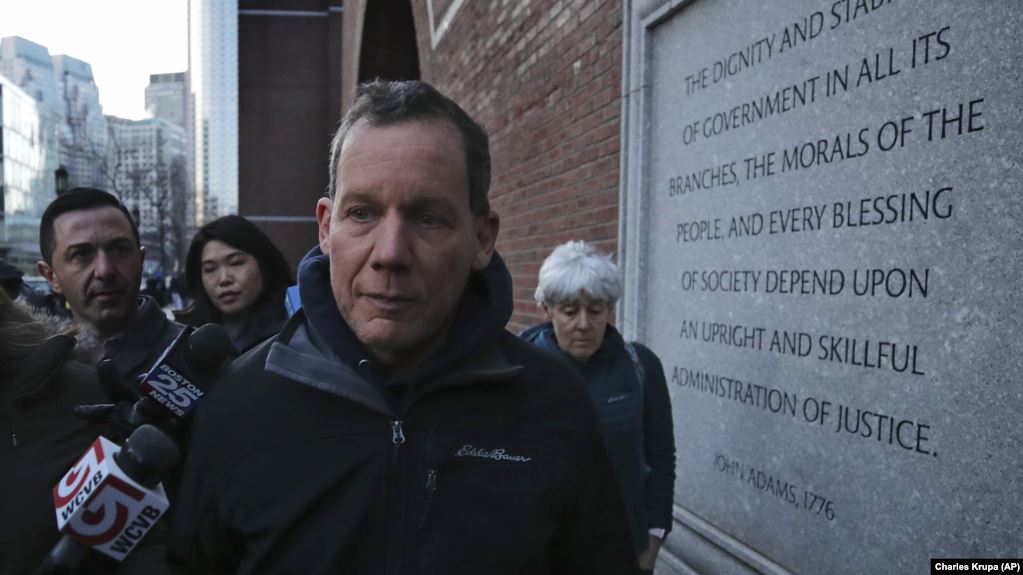 Harvard Professor Charged with ‘False Statements’ about China Ties The United States Department of Justice announced Wednesday that a Harvard University professor and two Chinese nationals have been charged in connection with aiding China.
Harvard Professor Charged with ‘False Statements’ about China Ties The United States Department of Justice announced Wednesday that a Harvard University professor and two Chinese nationals have been charged in connection with aiding China.
Charles Lieber is head of Harvard’s Chemistry and Chemical Biology Department. U.S. officials say he was arrested and charged with making false statements to the Defense Department about his ties to a Chinese government program.
The Justice Department claims that Lieber lied about his involvement with a program known as the Thousand Talents Plan. It said the Chinese government and the Wuhan University of Technology (WUT) gave him more than $1.5 million dollars to set up a laboratory and carry out research in China. In exchange, WUT gave the Harvard professor $50,000 a month and also paid for housing and other living expenses.
Nearly 200 investigations into threat
The Justice Department also announced charges against Yanqing Ye, who is currently in China. The charges include visa fraud, making false statements and acting as an agent of a foreign government.
U.S. officials arrested Zaosong Zheng, another Chinese national, in December 2019 at Boston’s Logan International Airport. He is accused of attempting to secretly transport 21 containers of biological research to China. One month later, he was charged with smuggling goods from the United States and making false statements.
The New York Times reports there are at least 180 investigations of intellectual property theft at 71 universities and other institutions across the United States. The Thousand Talents "foreign experts" program is a major focus of the investigations.
The Justice Department has described the plan as one of China’s top talent recruitment programs. It is designed to interest and help high-level scientific researchers who would then support China’s scientific development, economic growth and national security.
Serious charges
"The charges brought by the U.S. government against Professor Lieber are extremely serious," said Harvard, in a statement to the technology website The Verge.
When U.S. researchers get financial help from the government, they must tell the truth about their connections with foreign organizations. The punishment for making false statements in this situation could include up to five years in prison and a fine of $250,000.
In the past six months, other university researchers have faced criminal charges for passing knowledge to China. One of them was Turab Lookman, a scientist who formerly worked at the Los Alamos laboratory in New Mexico. Last week, he admitted in court to lying about his involvement with the Thousand Talents Plan.
U.S. officials said they became interested in Lookman after he told a co-worker he had citizenship in four countries, including India, where he was born.
Cancer institute leadership involved
In December, Alan List resigned as chief executive officer and president of the H. Lee Moffitt Cancer Center & Research Institute in Tampa, Florida. An investigation found that List and Thomas Sellers, a vice president and director at Moffitt, and four of the cancer center’s researchers hid their ties to a Chinese medical university.
Additional employment
Feng (Franklin) Tao worked as a chemist at the University of Kansas. In August, federal officials charged him with four counts of fraud for working full-time for a Chinese university while receiving U.S. government money. Tao has denied the charges. His lawyer said that the case could have been a misunderstanding because of the researcher’s employment in China over the summer holidays.
The university says Tao is on administrative leave from his position as a professor of chemical engineering. Last month, the government announced more charges against him.
Wang Longmeng is a political commentator who lives in France. He said the Thousand Talents program had for many years tried to steal high technology from around the world.
"[Some] scholars and officials who live in a democratic system and enjoy all its freedoms will aid...those who would harm it for personal gain.”
Wang added, "Western countries should get hold of a list of those recruited to China's Thousand Talents Program and investigate them one by one."
I’m Jill Robbins.View -
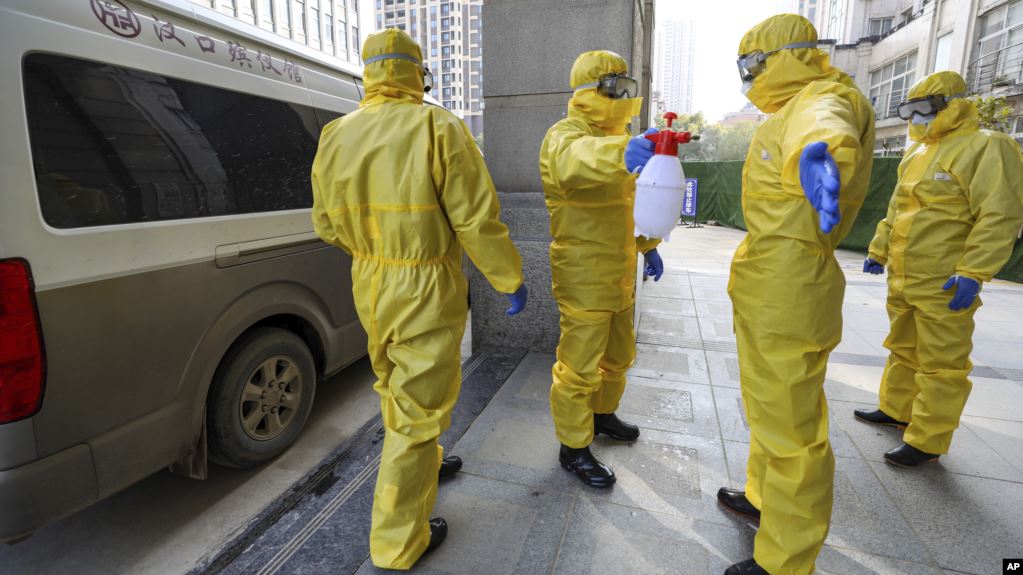 WHO Declares Coronavirus Outbreak a Global Emergency The World Health Organization has declared the coronavirus outbreak from China a “public health emergency of international concern.”
WHO Declares Coronavirus Outbreak a Global Emergency The World Health Organization has declared the coronavirus outbreak from China a “public health emergency of international concern.”
The virus was first reported in late December. It is believed to have spread to humans from wild animals sold at a market in Wuhan, a city in central China.
Since then, it has spread across China and to more than 20 countries and territories around the world. Health officials reported Thursday that China now has more than 8,000 confirmed cases. More than 170 people have died.
More than 100 cases have been reported outside mainland China, including 14 in Thailand, 11 in Japan, 10 in Hong Kong and Singapore each, and eight in Taiwan. Australia, Canada, the United Arab Emirates, India, the United States and several European countries have also confirmed returning travelers with the virus.
The United States and South Korea on Thursday reported their first cases of person-to-person spread of the virus. In the United States, the husband of a woman who got sick after returning from Wuhan now has the virus himself. The case in South Korea is a of man who had contact with an infected patient.
Human-to-human spread of the virus outside China has also happened in Germany, Japan, Canada and Vietnam.
Speaking from Geneva, Switzerland, WHO director-general Tedros Adhanom Ghebreyesus praised China’s efforts to control the outbreak so far. He said the emergency declaration “is not a vote of non-confidence in China.”
He said the main reason for the declaration was concern that the virus could “spread to countries with weaker health systems which are ill-prepared to deal with it.”
A declaration of an international “public health emergency” usually brings more money and resources to affected countries. But it also restricts travel, trade and requires strict disease reporting.
Preventive measures
On Thursday, Russia announced it was closing its 4200-kilometer border with China. Mongolia and North Korea have already closed their border crossings with China. And Hong Kong stopped train service from mainland China to guard against the spread of the virus.
Also on Thursday, a second Japanese flight carrying evacuees landed in Tokyo. Reports said nine of those 210 evacuees showed signs of a breathing sickness. Three of Japan’s confirmed cases were among those evacuees who had returned on another flight a day earlier.
The U.S. said it has plans for more evacuation flights early next week. It evacuated 195 Americans from Wuhan earlier this week. South Korea, Britain, New Zealand, Australia, Singapore and other European countries were also trying to get their citizens out.
Israel’s El Al, Spain’s Iberia, Scandinavian Airlines, Egypt Air and Korean Air joined the growing list of airlines suspending or reducing service to China.
Chinese officials have limited transportation in and out of Wuhan and 16 other cities, trapping more than 50 million people. The government has extended its Lunar New Year holiday to Sunday to try to keep people home.
China’s online shopping and home delivery businesses have helped people to get food and other goods.
The official Xinhua News Agency reported that officials are “stepping up efforts to ensure continuous supply and stable prices.” It noted government data showing that Wuhan has enough rice for more than 15 days, enough pork and eggs for more than 10 days and enough vegetables for about five days.
I'm Caty Weaver.View -
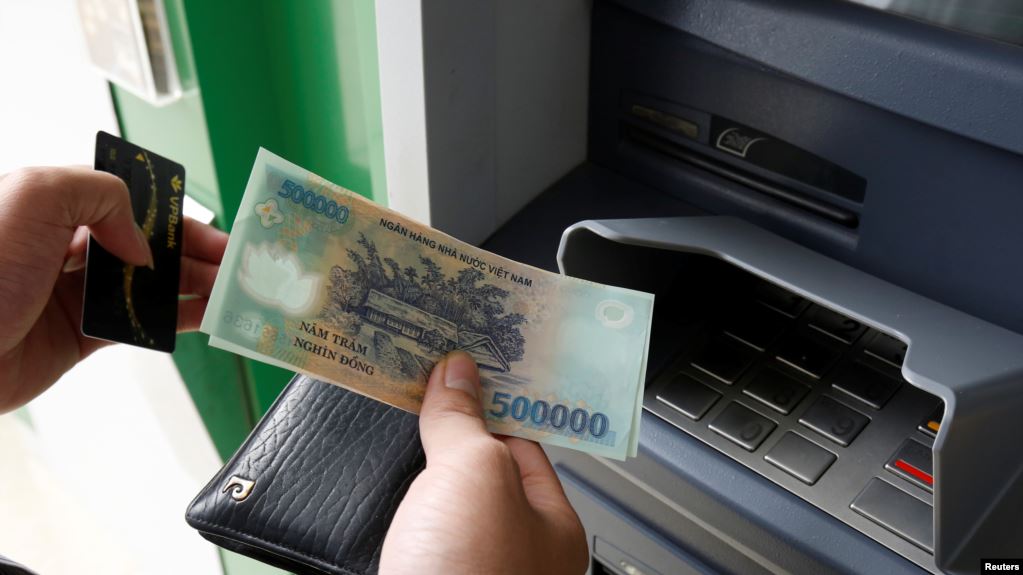 Vietnam Has One of the Highest Rates of Consumer Savings The market research company Nielsen reports that Vietnam has one of the world's highest rates of consumer savings. But observers disagree on whether it is a good sign.
Vietnam Has One of the Highest Rates of Consumer Savings The market research company Nielsen reports that Vietnam has one of the world's highest rates of consumer savings. But observers disagree on whether it is a good sign.
Sixty-nine percent of Vietnamese surveyed said they put extra money into savings. That compares with 66 percent of people in China and 62 percent in Indonesia.
As a developing nation, Vietnam is becoming increasingly wealthy. The country’s citizens are saving more, just as many people in countries around the world.
But observers, such as Binky Chadha of Deutsche Bank and former U.S. Federal Reserve chair Ben S. Bernanke worry there is a surplus in savings in the world economy. They say that can misrepresent the larger investment environment and lead to negative interest rates. Negative interest rates mean people would have to pay to keep their savings in a bank.
'An asset bubble'
In the U.S., surplus savings have pushed the stock market to record highs. Experts say the market is nearing a bubble. A bubble happens when there is a sudden increase in price over a short time period that is not supported by the value of a product.
In Vietnam, the extra savings has also led to an asset bubble, especially in the housing market.
Vietnam’s economy is growing quickly, but experts disagree on how to explain the wealth that it is being created. Researchers at the company Oxford Analytica say there may not be enough productive investments available. Savers are investing in luxury real estate that is feeding a bubble. But Nielson Vietnam says being able to save so much money is a good sign from consumers.
Louise Hawley is managing director at Nielsen Vietnam. She told VOA that as more and more people feel more certain about their future, they are saving more rather than spending today.
Worry about retirement?
However, the high savings rate could also mean people worry they will need the money for retirement.
This means Vietnam is part of a global trend identified by Chadha. He noted that savings rates are going up, even though interest rates are going down. He says people are not saving money to earn interest. Instead, Chadha sees this as a sign that people are saving because they fear they will not have enough money in the future.
Vietnam’s savings rate is not uncommon. Bernanke argued that Asia, especially China, has earned so much from exports that the money has aided a worldwide savings surplus. Recently, Vietnam has also become one of the developing Asian nations with high exports and a surplus.
Like China, Vietnam uses its surplus to buy U.S. Treasury bonds. The high demand for U.S. bonds is also a reason the U.S. does not have to pay a lot of interest on its bonds. This helps to lower interest rates.
Vietnam also uses its surplus to buy a lot of foreign money, mostly U.S. dollars. The U.S. Treasury complained in a report this month that this helps increase the value of U.S. dollars and lower the value of the Vietnamese currency. Vietnam’s exports seem even cheaper at a time when the Trump administration wants U.S. consumers to buy fewer Vietnamese products.
Still, Hawley said there is reason for hope in Vietnam. Her company’s December survey showed Vietnam has one of the world's highest levels of consumer confidence, just after India and the Philippines.
I’m Jonathan Evans.View -
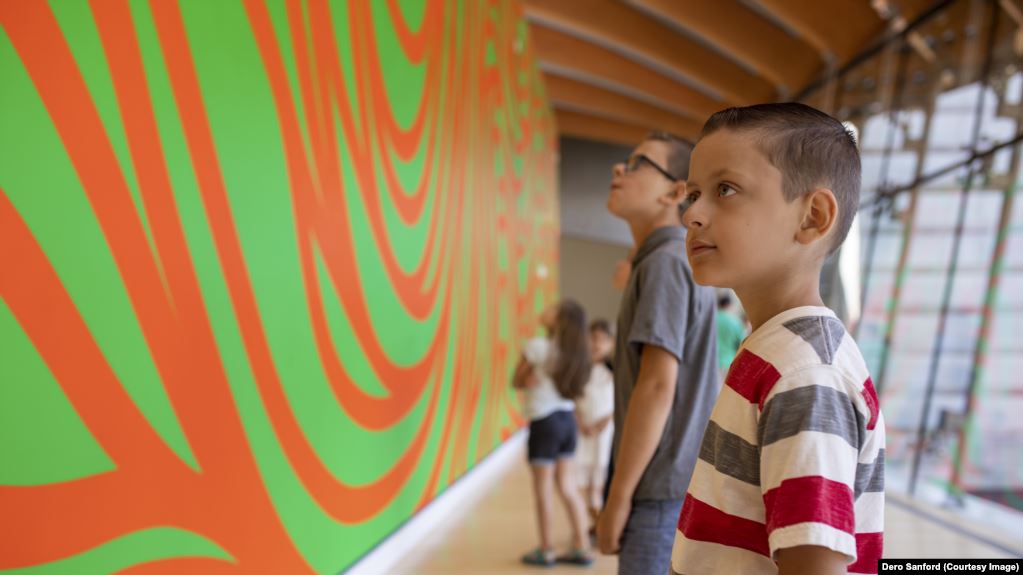 Do Field Trips Help Students with Learning? Trips to museums are part of many children’s education in the United States. The American Alliance of Museums says museums receive about 55 million visits each year from students in school groups.
Do Field Trips Help Students with Learning? Trips to museums are part of many children’s education in the United States. The American Alliance of Museums says museums receive about 55 million visits each year from students in school groups.
Many U.S. school systems are most concerned about students performing well on required math and science tests. Because of this, administrators and teachers might not see the value of art-related museum field trips.
This is where Jay Greene comes in. He is a professor of education policy at the University of Arkansas. He and his research team are studying how attending cultural events help a student’s education. The National Endowment for the Arts supports part of their research.
Greene told VOA that his team wanted to learn how a single trip to an art museum affects a student. For this study, he and his team looked at 11,000 students.
“...And we found that students who visited an art museum were more tolerant, more empathetic, and also learned a lot of content about the art they saw and developed stronger critical thinking skills about art.”
Greene explained that after one visit to the art museum, students averaged an eight percentile improvement on tolerance and empathy. He calls that a “moderate effect,” but “impressive,” considering that it was after just one visit to the art museum.
Marissa Reyes is with Crystal Bridges Museum of American Art in Bentonville, Arkansas. The museum has been involved with Greene’s studies. Since 2012, the museum has had nearly 300,000 students come to visit. It also sends teaching artists to local classrooms.
Reyes said she agrees with Greene’s findings on the effects of museum trips. She added that the greatest effect appears to be for students in rural areas, minority students and those who attend high-poverty schools.
Greene’s researchers also examined how going to a live theater performance can affect students. This study involved a small number of subjects – about 1,500 students from 40 schools. The students were also older. They all lived in northwest Arkansas.
Green said his team found that students who saw a live performance “experienced improvement in tolerance and empathy.”
A different group of students watched a movie version of the same play. Greene said they did not experience the same results as those who went to the live theater. The students who saw the live performance learned the story and related vocabulary better than those who watched the movie version, he said.
“So we think that there's something special about in-person cultural experiences that are different than simply digital experiences of those of those same stories.”
Greene’s team is now carrying out longer-term studies, in which they are following students over many years. He has already seen some promising results among students who have been visiting the Woodruff Arts Center in Atlanta, Georgia.
“Our most surprising result is that we saw improvements in math and reading test score performance for students in Atlanta after they went on multiple enriching field trips. We think that again that has to do with improving their motivation.”
Greene says that the fact they did well on the tests “suggests that motivation is a very important part of success in school.” This is true for students of all ages.
Students’ behavior in school also improved. Greene thinks part of that may be because they were doing something fun in school.
“Because if the school doesn't do it for kids from more disadvantaged backgrounds, then it's possible these kids won't get much exposure to the arts at all.”
And that, he says, may hurt their future.
Combining the arts and STEM fields
Some museums, like Crystal Bridges Museum in Arkansas, are looking for ways to offer new programs for schools.
Marissa Reyes said that, in addition to their usual arts field trips, the museum also offers “STEM-based tours.” STEM stands for science, technology, engineering and math—areas of great concern to many schools. Reyes explained that these tours look at connections “between art and science, art and math, and art and architecture.”
She said, “these experiences complement learning goals in both the arts and the STEM categories."
I’m Anne Ball.View

